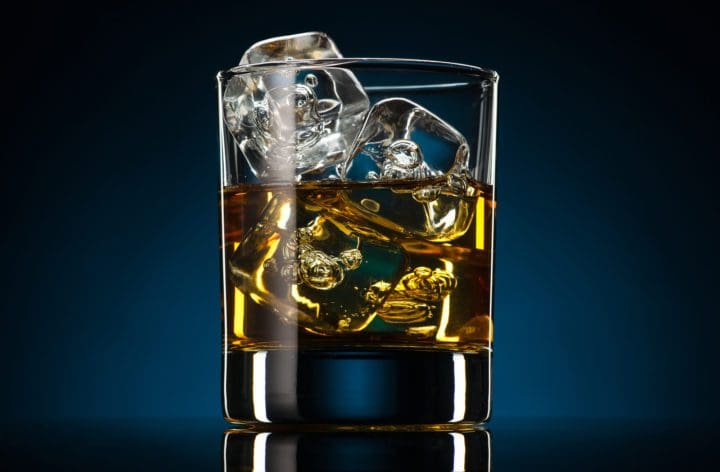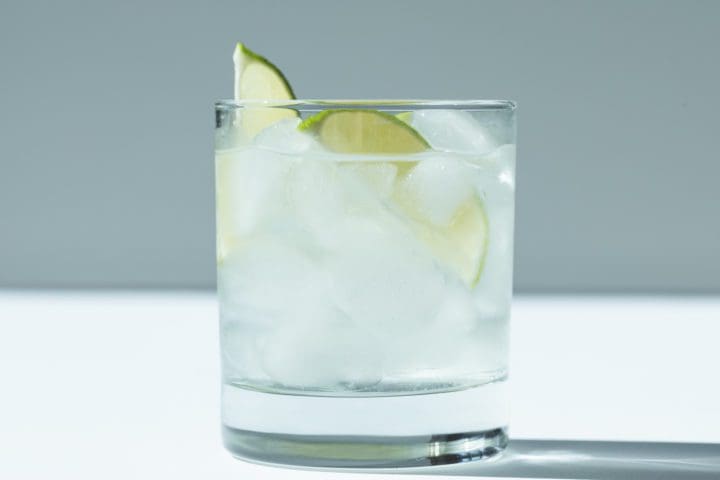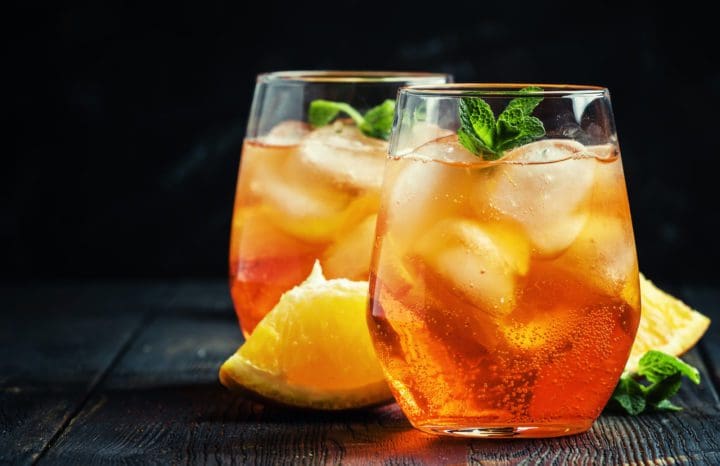Passion Fruit Mango Beer Cocktail
Passion Fruit Mango Beer Cocktail You all know that I pretty much love entertaining, whether it's a small family affair or a bigger friends party, I just love too much to invite people over....
Unveiling the world of cocktails and spirits can be exciting, but it helps to understand the foundation – gin and whiskey. At first glance, these two titans of the liquor cabinet might seem like close cousins. They're both incredibly popular choices for cocktails and highballs, ranking high on the list of must-have spirits. But dig a little deeper, and you'll discover a world of difference between them.

When assessing the merits and qualities of gin vs whiskey, one must first understand the origins of each, and their distinct flavor profiles. Read this two-minute explainer to find out what you need to know before diving into the world of whiskey and gin drinks.
Unveiling the history behind gin and whiskey reveals some interesting distinctions. Whiskey boasts a long and proud heritage, originating in the Scottish highlands centuries ago. Even today, all whiskey from Scotland retains the prestigious title of “Scotch.” Meanwhile, American whiskey takes a different path, often using corn instead of rye and earning the name “bourbon.” Gin's story is a little less clear-cut. While the Victorians in England popularized it, evidence suggests gin may have originated in southern France or Italy, initially used for its supposed medicinal benefits. Unlike whiskey, gin isn't tied to a specific region today, with diverse varieties being produced all over the world.
This is where a major difference between gin and whiskey comes into play: aging. Whiskey requires aging in casks, and the type of cask significantly impacts the final flavor. Different whiskeys have specific cask requirements, often based on the wood type and how it's been treated. For example, Scotch requires casks that have been slightly charred by fire, which contributes to that signature smoky taste. If you'd like to delve deeper into the fascinating world of casks and whiskey, check out this essential guide!

Whiskey's journey from grain to glass is a patient one, often taking years of aging in charred casks that impart complex flavors. In contrast, gin takes a much swifter path. Distilled botanicals, primarily juniper berries, are combined with a base spirit, creating a spirit in a single day. While casks can be used for gin, aging isn't mandatory, resulting in the distinct flavor profiles we know and love.
Most whiskey has a smoky flavor profile, although scotch will invariably be smokier than bourbon. Some whiskies lean towards a sweeter taste, and all whiskies have a more “rugged” flavor profile, featuring oak, smoke, and even peppery notes. Gin, meanwhile, is a botanical drink. Its flavor comes from punchy, bitter juniper berries, and is often infused with citrus notes from coriander, angelica root, or lime. Put simply, whiskey is a chilly fall evening, and gin is a hot summer day.
They can be personalized with garnishes when they are used to make drinks. For example, top them with mint leaves or put customized stickers on the cups. Design something personalized that you like, or you can design decorative die-cut stickers to add more mood and beauty to the drink.

Selecting between gin and whiskey depends on the experience you're seeking. Gin's botanical notes make it ideal for refreshing, fruit-forward cocktails, perfect for warm weather. Conversely, whiskey offers a smooth and sophisticated spirit, ideal for sipping neat or enjoying in a relaxed setting. Don't worry if you haven't developed a refined palate yet – we'll guide you through exploring both options to find your perfect match!
Our expertly curated food and drink guides offer you the building blocks you need to become a connoisseur in just about anything. Check it out to see what you can learn.
